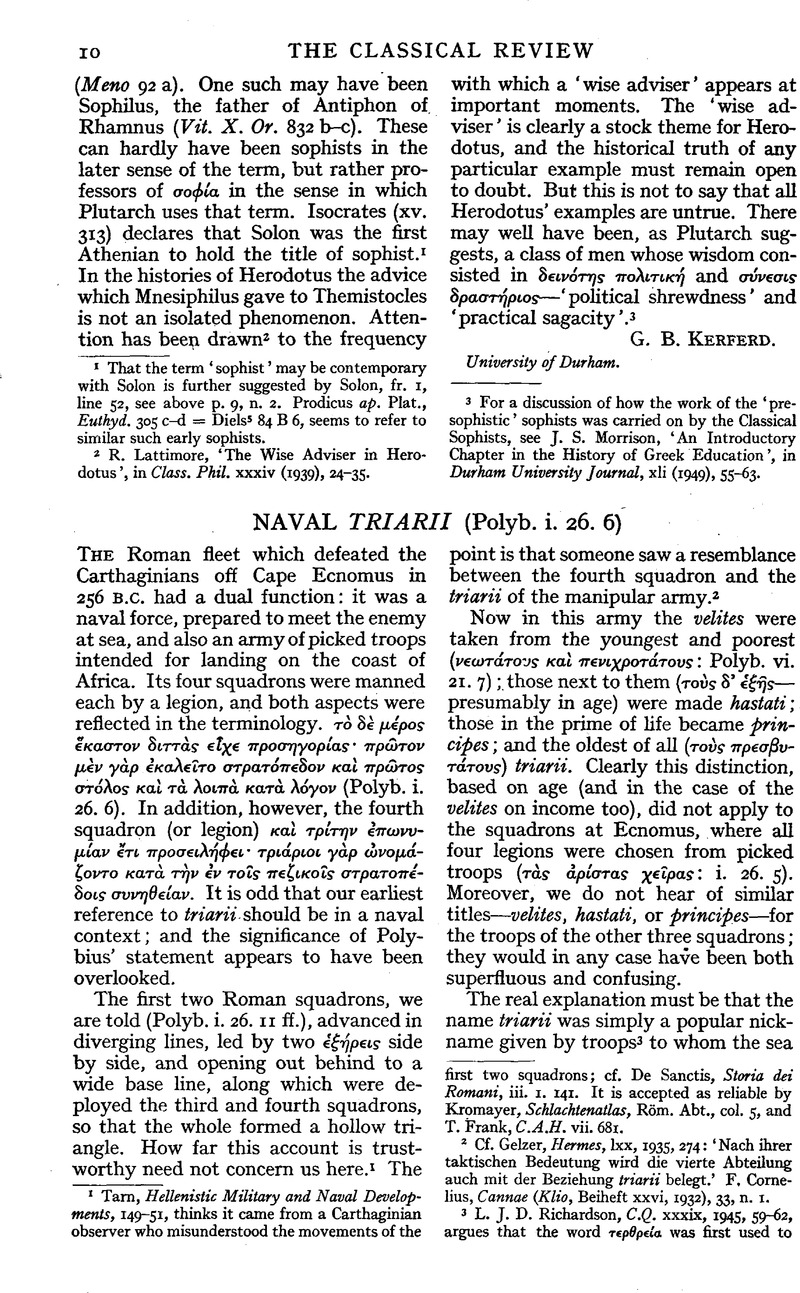No CrossRef data available.
Article contents
Naval Triarii (Polyb. i. 26. 6)
Published online by Cambridge University Press: 27 October 2009
Abstract

- Type
- Review Article
- Information
- Copyright
- Copyright © The Classical Association 1950
References
page 10 note 1 Tarn, , Hellenistic Military and Naval Developments, 149–151Google Scholar, thinks it came from a Carthaginian observer who misunderstood the movements of the first two squadrons; cf. Sanctis, De, Storia dei Rotnani, iii. 1. 141Google Scholar. It is accepted as reliable by Kromayer, Schlachtenatlas, Röm. Abt., col. 5, and T. Frank, C.A.H. vii. 681.
page 10 note 2 Cf. Gelzer, , Hermes, lxx, 1935, 274Google Scholar: ‘Nach ihrer taktischen Bedeutung wird die vierte Abteilung auch mit der Beziehung triarii belegt.’ Cornelius, F., Cannae(Klio, Beiheft xxvi, 1932), 33, n. 1Google Scholar.
page 10 note 3 Richardson, L. J. D., C.Q. xxxix, 1945, 59–62CrossRefGoogle Scholar, argues that the word τϵρθρϵία was first used to describe the office of the τερθρηδών or πρῳρες, and was then applied to a military office. ‘The analogy between the military and naval careers may well have reflected itself in a… transference of terminology, perhaps at first playfully applied’ (p. 61). This is very much what I suggest happened with the word triarii in 256 B.C. Polybius may not have fully appreciated the point of the joke.
page 11 note 1 Livy, viii. 8. II; cf. Seneca, de tranq. 4. 5; Varro, l.l. v. 89.
page 11 note 2 Polybius' source will of course be Fabius Pictor.
page 11 note 3 Cf. Wunderer, C., Polybios-Forschungen, iii(1909), 48Google Scholar: ‘jedenfalls ein Soldatenwitz mit Beziehungen, die wir nicht mehr recht verstehen’. For further examples of instruments of war with metaphorical names taken from soldiers' slang see pp. 74 ff. of this pamphlet.
page 11 note 4 On the coruus see now Thiel, J. H., Studies in the History of Roman Sea-power in Republican Times, 432–447Google Scholar; de Saint-Denis, E., Latomus, v, 1946, 359–367Google Scholar.




